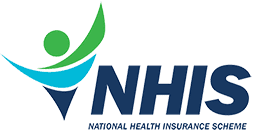President John Mahama has directed the National Health Insurance Scheme to extend dialysis subsidies to patients receiving treatment at private hospitals, ending a disparity that forced kidney patients to choose between affordability and accessibility.
Health Minister Kwabena Mintah Akandoh announced the decision during the inauguration of the Ghana Medical Trust Fund Board, known as Mahama Cares, revealing that the government will now pay GH₵500 per dialysis session for patients treated at private facilities. That matches the existing GH₵499 support available at public hospitals, effectively absorbing half the cost of dialysis sessions across both sectors.
“Many patients depend on private centres for dialysis, and the President has directed that they receive the same level of support,” Akandoh stated. The directive has already been communicated to the National Health Insurance Authority for swift implementation.
The policy addresses a longstanding inequity in Ghana’s healthcare system. Kidney patients who couldn’t access public hospital dialysis services, whether due to capacity constraints, location, or other factors, had to shoulder the full cost at private facilities while their counterparts in government hospitals received substantial subsidies. For a treatment that typically costs around GH₵1,000 per session, and which most patients need two to three times weekly, that disparity created devastating financial pressure.
The announcement came during the board inauguration for the Ghana Medical Trust Fund, officially launched by President Mahama on April 29, 2025, with a mandate to provide financial assistance for chronic non-communicable diseases including kidney disease, cancer, and heart conditions. The fund represents one of Mahama’s major healthcare initiatives since returning to office.
Anthony Ashitei Lithur chairs the newly inaugurated board, with Adjoa Obuobia Darko-Opoku serving as administrator, alongside other health and finance professionals. Their challenge will be managing a fund that aims to address Ghana’s growing chronic disease burden while ensuring financial sustainability.
The NHIA has assured the public that the free dialysis program under NHIS continues until the Ghana Medical Trust Fund becomes fully operational, preventing any gap in coverage during the transition. That’s important because uncertainty about continued support could have deterred patients from seeking necessary treatment.
The minister encouraged corporate bodies and individuals to contribute to the trust fund, recognizing that government resources alone won’t meet the full scope of chronic disease treatment needs. It’s a pragmatic acknowledgment that healthcare financing requires multiple streams, though it also raises questions about whether a fund dependent on voluntary contributions can provide reliable coverage.
Ghana’s dialysis situation has been challenging for years. The country has limited dialysis capacity relative to the number of kidney patients, with many people dying while waiting for treatment or unable to afford the sessions needed to stay alive. The government designated 20 hospitals to provide free dialysis starting December 1, 2024, but capacity constraints meant private facilities remained essential for many patients.
Extending subsidies to private hospitals makes practical sense from a health systems perspective. If government facilities can’t meet demand, and patients are already using private services out of necessity, ensuring those patients receive the same financial support reduces the economic barrier to life-saving treatment. It also acknowledges that private healthcare providers are part of Ghana’s health infrastructure, not competitors to be excluded from public health initiatives.
The policy does raise questions about cost control and sustainability. Private facilities typically charge more than public hospitals for comparable services. If the government pays GH₵500 per session regardless of the facility’s total charge, private hospitals could theoretically increase their rates, with patients bearing the additional cost. Without price regulation or negotiated rates, the subsidy might not achieve its intended relief.
There’s also the broader question of NHIS financial sustainability. Parliament approved GH₵10.7 billion for NHIS in 2025, representing a substantial increase over previous years. Adding dialysis coverage at private facilities expands the scheme’s obligations without necessarily expanding its revenue base. Whether NHIS can maintain this level of support long-term depends on sustained government funding and improved revenue collection.
For kidney patients, though, these policy considerations matter less than the immediate reality: they can now access dialysis at private facilities with meaningful financial support. Someone living in an area without adequate public hospital dialysis capacity no longer faces the impossible choice between traveling long distances to access subsidized treatment or paying full cost locally.
The extension of dialysis subsidies represents incremental progress in Ghana’s effort to provide universal health coverage. It doesn’t solve all the challenges facing kidney patients, including limited overall dialysis capacity, late diagnosis of kidney disease, and the underlying health conditions that cause kidney failure. But it removes one significant barrier to accessing life-saving treatment.
Whether the Ghana Medical Trust Fund achieves its broader objectives for chronic disease treatment remains to be seen. The board now faces the task of translating presidential directives and ministerial announcements into operational systems that actually deliver support to patients who need it. That requires robust administration, transparent financial management, and sustained political commitment beyond the initial launch publicity.
For now, kidney patients receiving dialysis at private facilities have reason for cautious optimism. The government has recognized their situation and ordered concrete support. The critical test comes in implementation: how quickly the subsidy reaches patients, whether it provides meaningful relief, and whether the system can sustain this commitment over time.
Source: newsghana.com.gh











